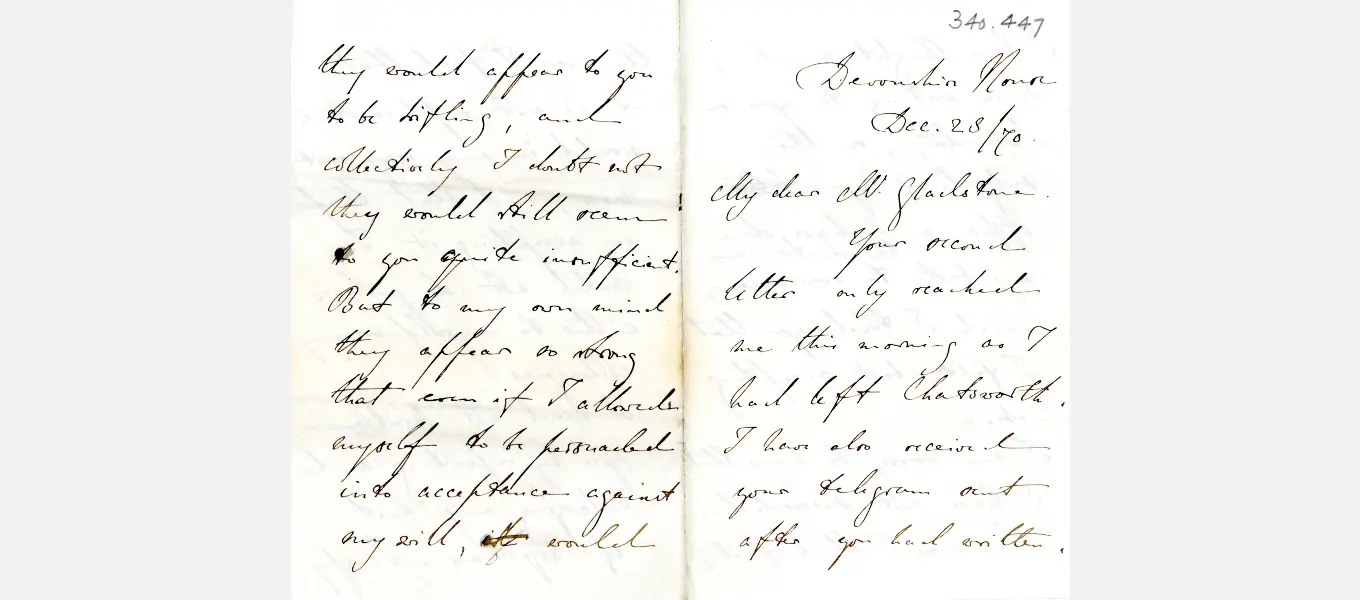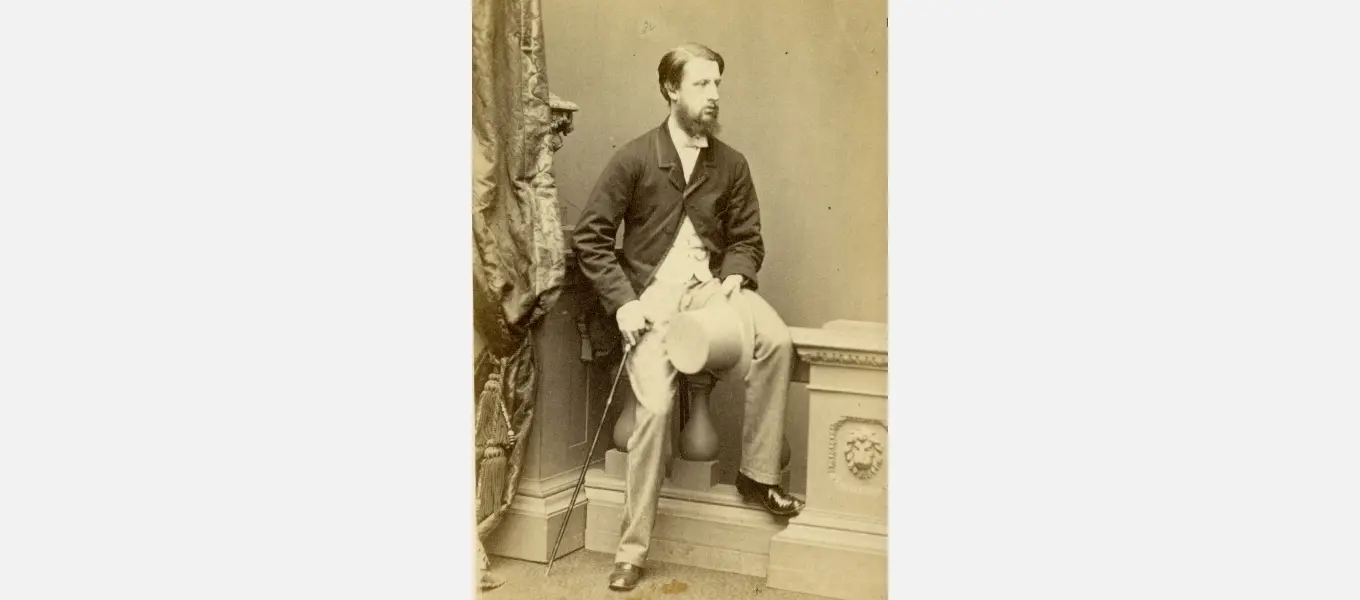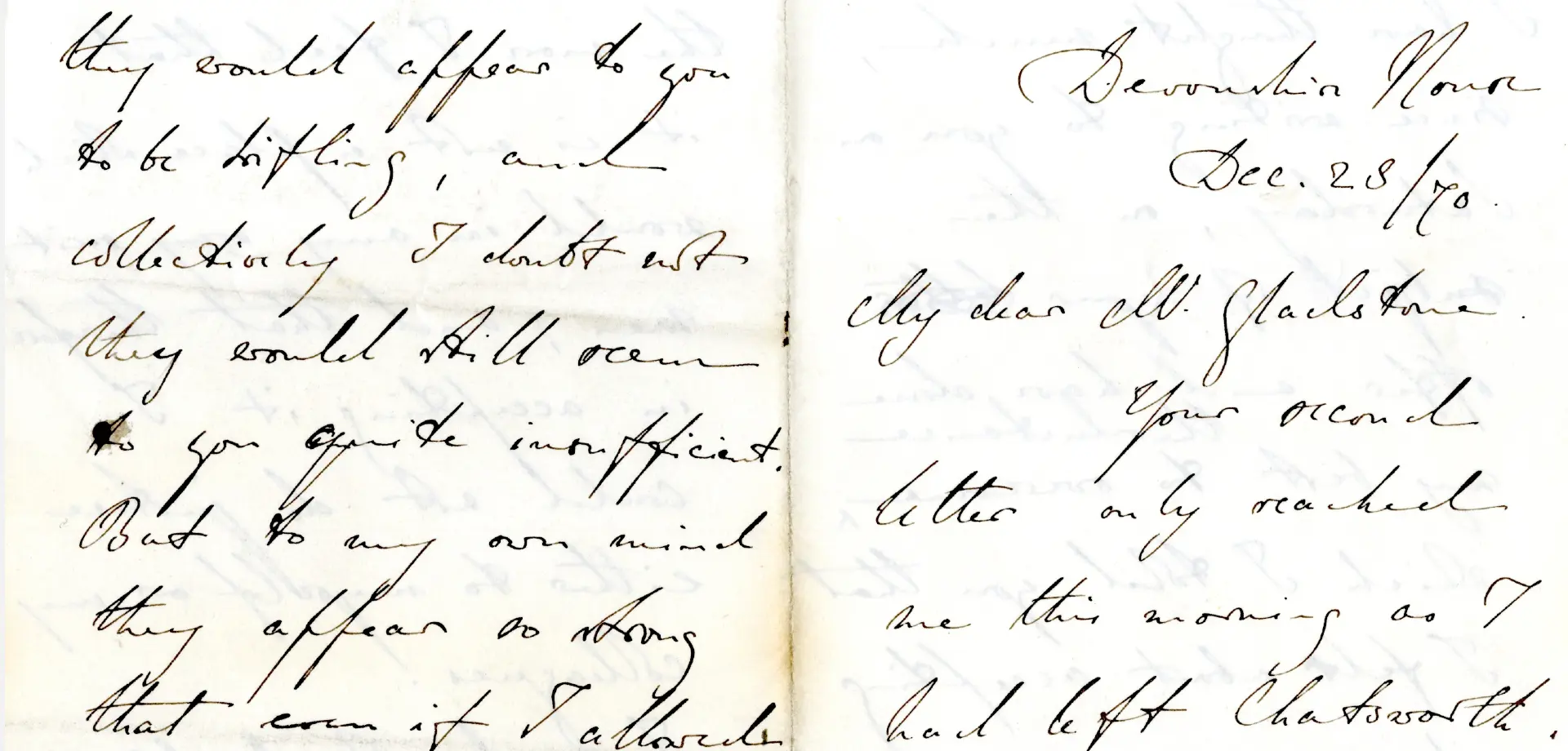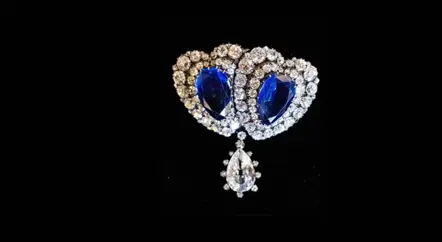Collections Assistant Ian Gregory is currently scanning the correspondence of Spencer Compton Cavendish, 8th Duke of Devonshire (1808-1891), Here he reflects on a letter that intrigued him:
William Ewart Gladstone (1809-1898) is often considered the greatest British Prime Minister of the nineteenth century. During my work in the archives, I recently scanned a draft letter from the future 8th Duke of Devonshire to Gladstone. Both men were politicians in the Liberal Party.

Gladstone was Prime Minister at the time in question (28 December 1870) and the 8th Duke’s letter was written in response to an apparent offer being made to him by Gladstone. The letter does not describe what this was, but the Duke accepted the post of Chief Secretary for Ireland shortly afterwards. He did so reluctantly, for Gladstone and the Duke (at that time Lord Hartington) had differing views on Irish land reform.

The Duke writes concerning Gladstone’s offer: “The more I think of it, the more I feel that it is not a place which would in any way suit me, and that therefore in accepting it I could not do justice either to myself or my colleagues”.
If this refers to the offer of the Chief Secretary role, then Lord Hartington subsequently changed his mind, for he held that office from 1871-1874. He went on to become Secretary of State for India, Secretary of State for War, and leader of the Liberal Party while it was in opposition, before becoming Duke in 1891. He turned down the opportunity to become Prime Minister three times and never held that office.
Ireland was to cast a dark shadow over the then Lord Hartington. In 1882 his brother Lord Frederick Cavendish was murdered in Dublin by politically motivated Irish nationalists. In 1885 Lord Hartington broke with Gladstone due to their differences over Ireland. He refused to serve in Gladstone’s third administration.
Was that innocent-looking letter a foretaste of troubles that no one could have foreseen? If it does refer to Ireland and Irish politics – which seems likely – then yes, it was.
The 8th Duke’s correspondence will be catalogued in detail as part of our forthcoming project, so look out for further blog posts on this topic during the next couple of years.






